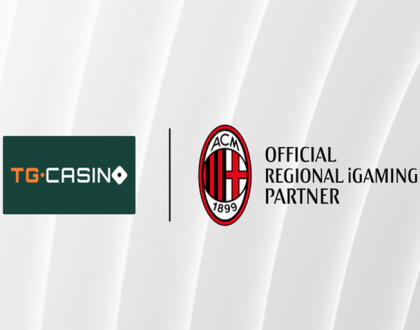iGaming Laws in Malta – A User’s Guide

Most in the iGaming industry are aware of Malta’s reputation as a top destination for online gambling operators. Understanding the laws and regulations in place in Malta is crucial for both businesses and players to ensure compliance and a safe gaming environment. In this comprehensive guide, we will explore the key details of iGaming laws in Malta, covering licensing requirements, player protection measures, and the positive impact of these regulations on the industry.
The History of iGaming Laws in Malta
Origins and Early Legislation
For many businesses across the globe, Malta has become synonymous with iGaming regulations. The island nation in the Mediterranean has a long-standing history in the iGaming industry, dating back to the early 2000s. Laws governing online gaming in Malta originated with the Lotteries and Other Games Act of 2001, which established the Malta Gaming Authority (MGA) as the regulatory body overseeing all gaming activities.
Evolution of Regulations Over Time
An imperative aspect of Malta’s iGaming laws is their adaptability and evolution over the years. As the industry grew rapidly, so did the need for more comprehensive regulations to ensure player protection and industry integrity. The Maltese government recognized the importance of fostering a safe and secure gaming environment, leading to updates in legislation to keep pace with technological advancements and changing trends in the sector.
For instance, the Remote Gaming Regulations of 2004 established the framework for remote gaming operations in Malta, providing a clear set of rules for operators to follow. These regulations marked a significant step forward in ensuring player protection and responsible gaming practices within the jurisdiction. The emphasis on consumer safeguards and responsible gaming has remained a cornerstone of Malta’s approach to iGaming regulation, solidifying its reputation as a leading hub for online gaming businesses.
Types of iGaming Licenses in Malta
There’s a variety of iGaming licenses available in Malta to cater to different types of online gambling operations. Each license comes with its own set of requirements, fees, and responsibilities. It’s imperative to understand the differences between these licenses to ensure compliance with Maltese iGaming laws.
Business-to-Consumer (B2C) Licenses
This type of license is required for operators offering online gaming services directly to consumers. It covers activities such as casino games, sports betting, poker, and other online games of chance. To obtain a B2C license in Malta, you need to demonstrate financial stability, player protection measures, responsible gaming practices, and compliance with anti-money laundering regulations.
Business-to-Business (B2B) Licenses
To operate as an intermediary between iGaming operators and service providers, you will need a Business-to-Business (B2B) license in Malta. This type of license allows you to offer services such as hosting, software development, payment processing, and data management to licensed B2C operators. The B2B license is imperative for companies looking to provide critical infrastructure and services to the iGaming industry in Malta.
To further clarify, Malta is known for its robust iGaming regulatory framework, making it a preferred jurisdiction for many operators seeking a reputable license. With a Malta iGaming license, operators can access the European market and enjoy the benefits of operating in a well-regulated environment. Importantly, the Malta Gaming Authority (MGA) oversees the licensing process and ensures that license holders adhere to strict standards for player protection and responsible gaming. This ensures a safe and fair gaming experience for players while upholding the integrity of the industry.
Step-by-Step Guide: Obtaining an iGaming License in Malta
Keep in mind that obtaining an iGaming license in Malta is a rigorous process that requires compliance with strict regulations and high standards set by the Malta Gaming Authority (MGA). Understanding the steps involved and the requirements needed will help streamline the application process and improve your chances of success.
Preliminary Steps and Requirements
On the road to obtaining an iGaming license in Malta, there are a few key preliminary steps and requirements that you must meet. These include establishing a Malta-based company, appointing a Key Official who is a resident in Malta, and ensuring that your business model complies with all MGA regulations.
Application Process and Documentation
Preliminary to the application process, you need to ensure that you have all the necessary documentation in place. This includes a detailed business plan, a compliance and AML program, financial statements, and information on the ultimate beneficial owners of the company. It is crucial to provide accurate and complete documentation to avoid delays in the licensing process.
Guide: Once you have gathered all the required documentation, you can proceed with submitting your application to the MGA. The application process involves a thorough review of your business operations, including your technical setup, security measures, and player protection policies.
Assessment and Approval
Even though the assessment process can be lengthy, it is necessary for the MGA to ensure that your iGaming operations meet the required standards. The MGA will assess your application based on various criteria, including your company’s financial stability, the integrity of the shareholders, and the reliability of your gaming software.
Obtaining an iGaming license in Malta is a significant milestone for any company looking to operate in the online gaming industry. By following the step-by-step guide and meeting all the necessary requirements, you can enhance your credibility, expand your market reach, and establish a solid foundation for your iGaming business.
Complying with Malta's iGaming Regulations
Once again, Malta is paving the way when it comes to iGaming regulations. To operate a successful iGaming business in Malta, it is crucial to comply with the regulations set forth by the Malta Gaming Authority (MGA). Failure to adhere to these regulations can result in severe penalties, including revocation of licenses and hefty fines.
Player Protection Measures
For iGaming operators in Malta, ensuring player protection measures are in place is non-negotiable. This includes stringent verification processes to prevent underage gambling, tools for responsible gambling such as self-exclusion options, and secure handling of sensitive player information. By prioritizing player protection, operators can build trust with their users and foster a safe gaming environment.
Anti-Money Laundering Protocols
Laundering money through iGaming platforms is a real concern, which is why Malta’s regulations mandate robust anti-money laundering protocols. Operators must implement thorough due diligence procedures, monitor financial transactions for suspicious activity, and report any potential money laundering to the relevant authorities. Failure to comply with these protocols can lead to serious legal repercussions and tarnish the reputation of the operator.
Measures should extend beyond player safety and include tax compliance and reporting.
Tax Compliance and Reporting
One of the critical aspects of operating an iGaming business in Malta is adherence to tax compliance and reporting requirements. Operators must ensure they are compliant with tax laws, including VAT and corporate tax obligations. It is imperative to keep detailed records of all financial transactions and report them accurately to the Maltese tax authorities. Any discrepancies or negligence in tax compliance can result in severe financial penalties and damage to the operator’s reputation.
important aspect of tax compliance is to stay updated on any changes in tax laws and regulations to ensure full compliance at all times.
Tips for Navigating iGaming Laws in Malta
Now that you have ventured into the world of iGaming in Malta, it is crucial to understand the laws and regulations that govern this industry. Navigating through the legal landscape can be complex and overwhelming, but with the right guidance, you can ensure compliance and operate within the boundaries set by the Malta Gaming Authority (MGA).
Engaging with Legal Experts
Some key players in the iGaming industry rely on legal experts to help them interpret and comply with the legal framework in Malta. These professionals have a deep understanding of the laws and regulations governing the iGaming sector, and can provide valuable insights on how to structure your operations to remain compliant. By seeking the expertise of legal professionals who specialize in iGaming laws, you can navigate the intricate regulatory environment with confidence.
For those who are new to the iGaming industry, it is vital to establish a good working relationship with legal experts who can guide you through the various legal requirements and ensure that your business is operating within the boundaries of the law. Thorough understanding of the legal framework is important to avoid potential pitfalls and penalties.
Understanding Technical Compliance
For many operators in the iGaming industry, technical compliance is a critical aspect of meeting regulatory requirements. Understanding the technical specifications outlined by the MGA is important to ensure that your online platform, games, and services are in compliance with the regulations. By adhering to technical standards, you can demonstrate your commitment to compliance and build trust with regulators.
Keeping Abreast with Regulatory Updates
Another crucial aspect of navigating iGaming laws in Malta is staying informed about regulatory updates. The iGaming industry is constantly evolving, and regulations are frequently updated to address emerging issues and challenges. By staying up-to-date with regulatory changes, you can ensure that your operations remain compliant and avoid any potentialpenalties or sanctions that may arise from non-compliance.
Regulatory updates can significantly impact the way you conduct your iGaming business in Malta. By monitoring these changes and adapting your operations accordingly, you can stay ahead of the curve and maintain a competitive edge in the market.
Factors Influencing iGaming Legislation in Malta
Unlike some other jurisdictions, iGaming legislation in Malta is influenced by a multitude of factors that shape the regulatory framework in the country. Understanding these influencing factors is crucial for businesses and individuals operating in the iGaming industry to ensure compliance and success.
The European Union Influence
An important factor influencing iGaming legislation in Malta is the European Union (EU). As a member state of the EU, Malta is required to align its laws and regulations with those set forth by the EU. This includes adhering to directives and regulations related to online gambling, consumer protection, and anti-money laundering measures.
The EU influence ensures that iGaming operators in Malta are held to high standards of transparency, fairness, and player protection. This helps to create a level playing field for operators and instills trust in consumers who engage in online gambling activities. This harmonization also promotes cooperation and consistency across the EU member states in regulating the iGaming sector.
Economic and Social Factors
For Malta, economic and social factors play a significant role in shaping iGaming legislation. The iGaming industry contributes substantially to the Maltese economy, providing employment opportunities and boosting revenue through licensing fees and taxes. Additionally, the social impact of online gambling on Maltese society must be carefully considered to ensure responsible gaming practices and mitigate potential harm.
- Economic growth
- Employment opportunities
Knowing how to balance the economic benefits of the iGaming industry with the social responsibility of protecting vulnerable individuals is vital for policymakers in Malta. By addressing these economic and social factors, the regulatory framework can support a sustainable and thriving iGaming sector while safeguarding the well-being of the Maltese population.
Technological Advancements
If Malta continues to be a leader in the iGaming industry, it must also adapt its legislation to keep pace with technological advancements. The rapid evolution of technology, including artificial intelligence, virtual reality, and blockchain, presents both opportunities and challenges for regulating online gambling activities.
Integrating these technological advancements into the regulatory framework can enhance player experience, improve security measures, and streamline compliance processes for iGaming operators in Malta. However, it also requires constant monitoring and updates to address potential risks such as data breaches, fraud, and money laundering.
The Pros and Cons of Malta's iGaming Laws
Advantages for Operators and Players
Little other jurisdictions can compete with Malta’s reputation as a hub for iGaming operators. The regulatory framework in Malta is well-established and respected in the industry, providing a sense of security and reliability for both operators and players. Operators benefit from Malta’s favorable tax regime and streamlined licensing process, while players enjoy a wide range of gaming options from reputable operators.
| Pros | Cons |
| Well-established regulatory framework | High competition among operators |
| Favorable tax regime | Strict compliance requirements |
| Reputation for reliability | Limited consumer protection |
Potential Challenges and Limitations
Potential challenges and limitations may arise for operators and players in Malta due to the high competition in the market. Operators face the challenge of standing out among numerous competitors, while players may struggle to distinguish between reputable and less trustworthy operators. Additionally, the strict compliance requirements imposed by the Malta Gaming Authority can be a barrier to entry for smaller operators.
Potential challenges and limitations may also stem from evolving technologies and changing consumer preferences in the iGaming industry. Operators need to adapt quickly to trends such as mobile gaming and cryptocurrency transactions to stay competitive in the market.
Comparative Analysis with Other Jurisdictions
Operators and players seeking to understand how Malta’s iGaming laws compare to other jurisdictions should consider factors such as regulatory stability, tax implications, and consumer protection measures. While Malta offers a well-established regulatory framework and favorable tax regime, some jurisdictions may provide more robust consumer protection measures or lower tax rates for operators.
| Regulatory Stability | Tax Implications |
| Well-established in Malta | Favorable in Malta |
| Varies in other jurisdictions | May be lower elsewhere |
| Some offer more robust measures | May be more competitive elsewhere |
Laws in different jurisdictions can impact the overall competitiveness and growth potential of iGaming operators. Operators should carefully evaluate the pros and cons of operating in Malta compared to other jurisdictions to make informed decisions for their businesses.
Conclusion
Summing up, the iGaming laws in Malta play a crucial role in regulating the online gaming industry in the country. By obtaining the necessary licenses and complying with the regulations set by the Malta Gaming Authority, operators can establish a legal and reputable presence in the market. Understanding the nuances of these laws is important for both operators and players to ensure a safe and fair gaming environment.
With its reputation as a leading jurisdiction for iGaming regulation, Malta provides a user-friendly framework that balances the interests of operators, players, and regulators. By following the guidelines laid out in this user’s guide, stakeholders in the iGaming industry can navigate the legal landscape in Malta with confidence and build successful and compliant online gaming businesses.
FAQs:
What are the key origins of iGaming laws in Malta?
iGaming laws in Malta trace back to the Lotteries and Other Games Act of 2001, establishing the Malta Gaming Authority.
What types of iGaming licenses are available in Malta?
Malta offers Business-to-Consumer (B2C) licenses for operators serving consumers directly and Business-to-Business (B2B) licenses for service providers.
What steps are involved in obtaining an iGaming license in Malta?
The process includes preliminary requirements, documentation submission, assessment by the Malta Gaming Authority, and final approval.
What player protection measures are mandated by Malta’s iGaming regulations?
Malta’s regulations include strict age verification, responsible gambling tools, and secure handling of player data.
How do Malta’s iGaming laws compare to those of other jurisdictions?
Malta offers a well-established regulatory framework and favorable tax regime, but comparisons should consider factors like regulatory stability and consumer protection measures elsewhere.
Michael
With over 20 years experience in web design, SEO and website promotion I always give you an expert advice in regard to any issues related to your Site Design, SEO, Internet Marketing, Promotion, Backlinks, Site Content. In order to help you find out what is missing or can be improved and get higher rankings in Google and more traffic.
Recommended Posts

Haunted Places in Malta
May 6, 2024

AC Milan & TG.Casino iGaming Partnership
May 6, 2024

